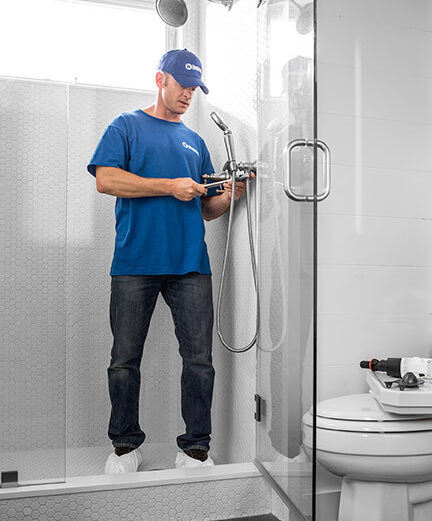We offer a wide range of services for that fresh look, or just maintenance or updates to keep your home functioning and safe. Regardless of the size of the job, we have a craftsman that can tackle it.

Home Maintenance / May 31, 2016

If you live in an area where the power tends to go out frequently, then you will want to invest in a whole house generator that can keep the lights on while the power company tries to fix the problem. But, as you start to investigate buying a generator for your home, you suddenly realize that you have a lot to consider before you can buy the generator that is ideal for your situation. Here’s an overview on whole house generators from your home maintenance experts at Handyman Connection of Lexington.
Before you invest in a whole house generator, you need to determine if you really need one in the first place. In some cases, a portable generator would be sufficient to keep the essential elements of your home going in the event of a power outage. You may be able to get by with just a portable generator if:
If the systems in your home are operated by computer, then it is in your best interests to get a whole home generator. If you live in an area where the snow can pile up in the winter, then a whole home generator can save your life. It is important to talk to an expert about your choices before investing in any kind of generator.
An automatic transfer switch (ATS) whole home generator is tied into your home’s electrical systems and turns itself on the moment the power goes out. You should never try to install a whole home generator on your own, but you should especially be careful with an ATS. There are ways an ATS can burn out your home’s electrical systems if it is not installed properly, and that would defeat the entire purpose of having a generator.
The other most common type of whole home generator is the manual switch generator. With this type of unit, you have to be home to turn the generator on when the power goes out. If you travel a lot or work a lot of hours, then a manual switch might not work for you. But if you tend to be home frequently, then a manual switch generator is a safe way to light up your home when the power is out.
How big should your generator be? To get the answer to this question, you need to consult with an electronics expert. Most new residential structures in the United States are designed to utilize no more than 200 amps of power. But in reality, your home may not consume nearly that much, and you should get a generator that matches your power usage.
When it comes to fuel source, you can choose between generators that run on diesel fuel or natural gas. You can also find whole house generators that run on liquid propane, but you will have to get a separate propane storage tank installed if your home does not already run on propane. Many people choose the convenience of natural gas because the generator can be hooked up to their existing natural gas service. But if you don’t have natural gas service where you are, then you should choose a fuel that makes sense to you.
The professionals at Handyman Connection of Lexington can help you to find the perfect whole house generator for your situation. All you need to do to get the help you need is visit our website and request a free, no-obligation project estimate!